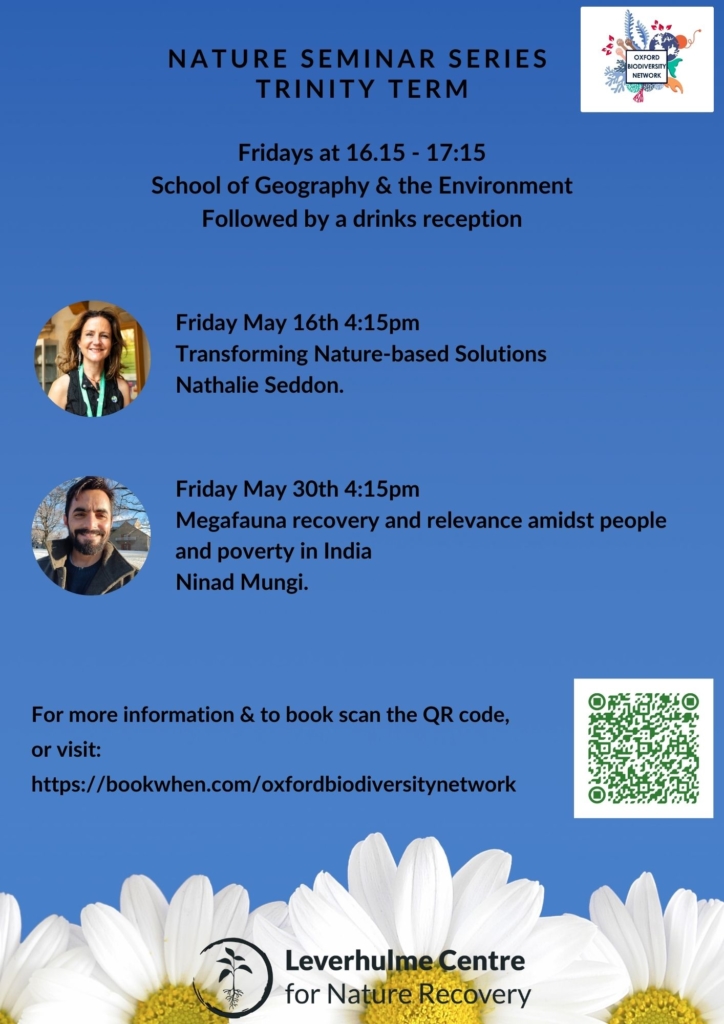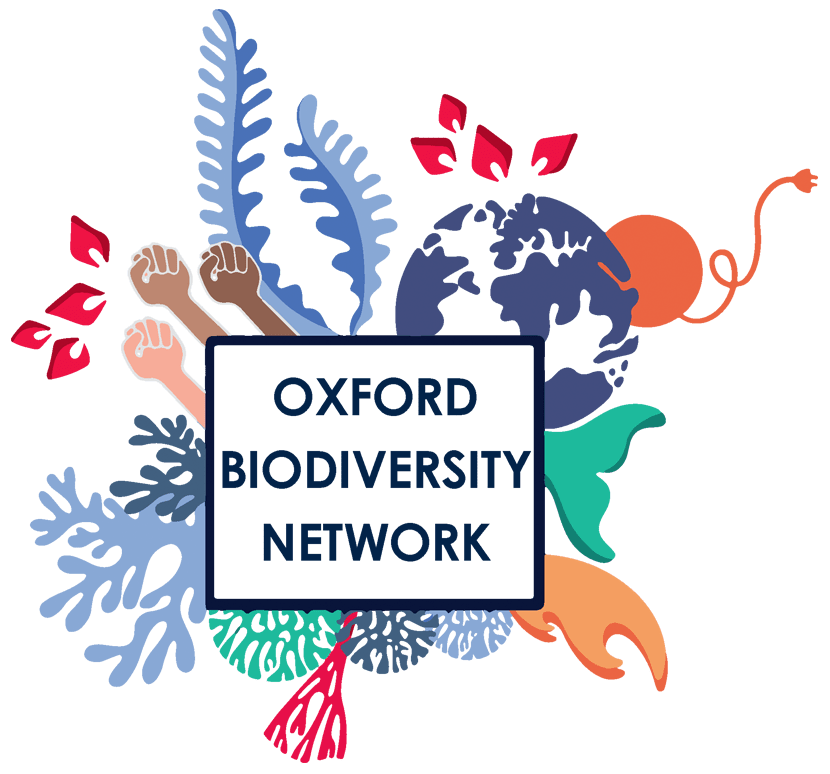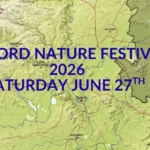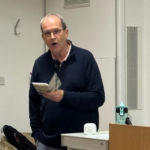Nature Seminar Series – Trinity Term
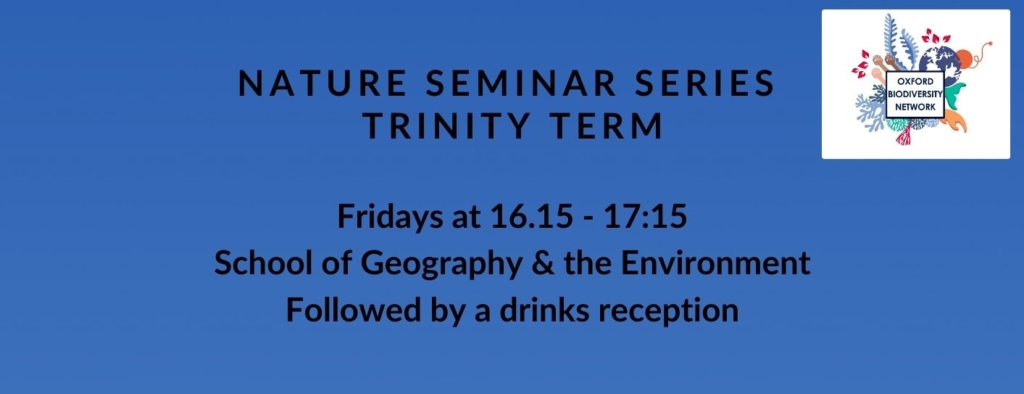
Friday 6th May: Transforming Nature-based Solutions – Nathalie Seddon, University of Oxford
Nature-based Solutions (NbS) are increasingly hailed as a means of tackling climate and biodiversity crises while benefiting society. Yet they’re often reduced to carbon-offset schemes or narrowly focused projects, overlooking their power for deeper systemic change. In this talk, I will explore how Western ecological science and Indigenous and Local Knowledge (ILK)—grounded in core values of relationality, reciprocity, responsibility, and redistribution—can unlock NbS’ transformative potential. Drawing on these worldviews, I will discuss how holistic measures, genuine community empowerment, and the reorientation of economic priorities toward stewardship can help NbS catalyse lasting social and ecological transformation rather than merely delivering incremental gains.
Friday 30th May: Megafauna recovery and relevance amidst people and poverty in India – Ninad Mungi, Aarhus University
Humans have historically extirpated large animals, or megafauna, on a global scale, a trend that has only intensified with the Anthropocene. Contrary to this pattern, some megafauna species are demonstrating a remarkable comeback, even amidst the densely populated landscapes of Earth. This talk demonstrates rare cases from India, where the decline in some megafauna populations has been effectively halted and examines factors contributing to megafauna recovery. Utilizing large-scale, long-term population assessments, our investigation focuses on the sustenance and recoveries of tigers, megaherbivores, and snow leopards. Beyond ecological factors such as habitat and food resources, we show how the economics of coexistence, political stability, and landscape sustainability have shaped megafauna trajectories. In an era of unprecedented novelty, these species are not just surviving but are potentially becoming central to promoting biodiversity and ecosystem resilience. India’s ecosystems, at crossroads of rapid global change and deep cultural ties to nature, offer valuable insights into the evolving model of megafauna conservation. It rekindles hope for a biodiverse Anthropocene.
Register to attend in-person or online here
